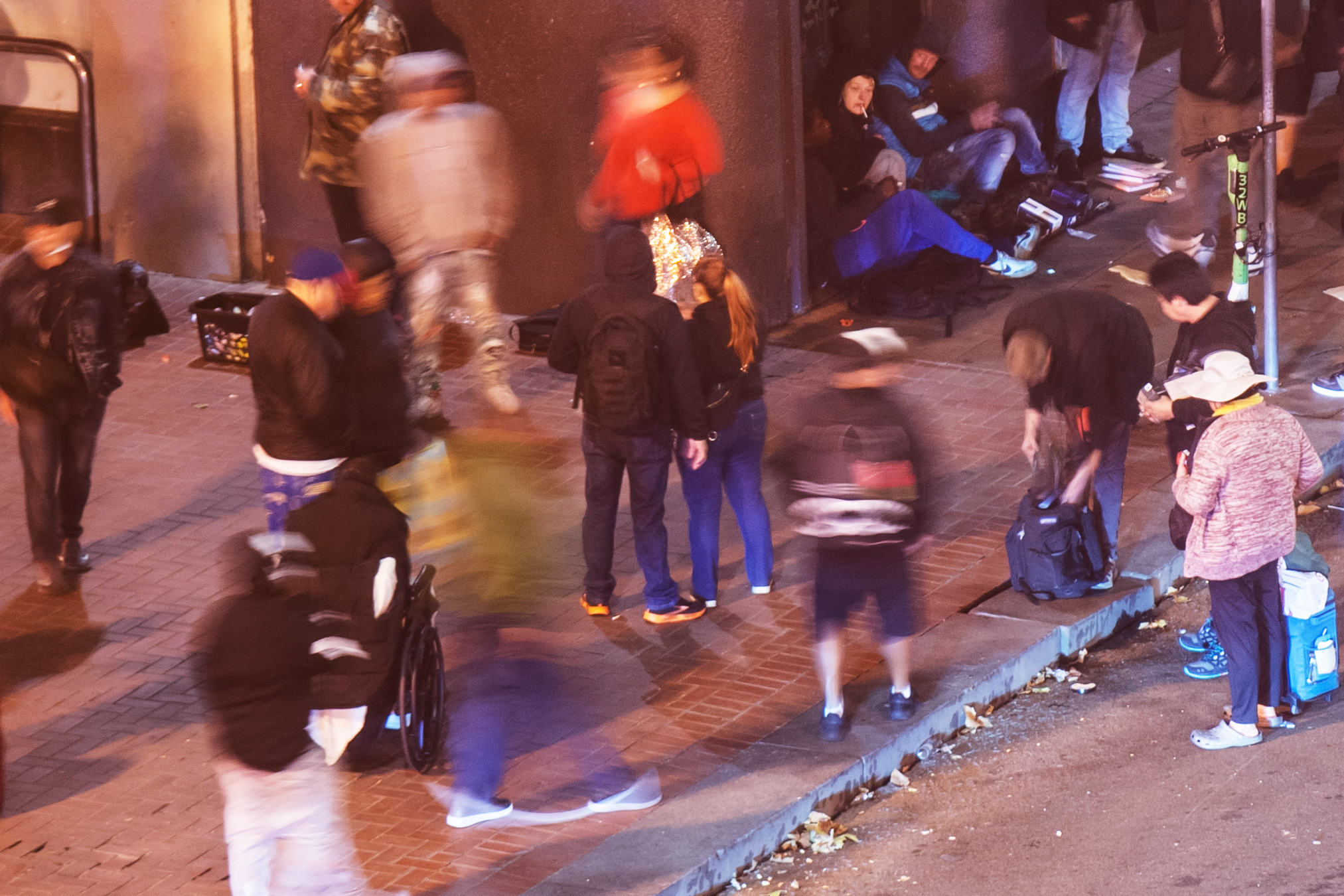San Francisco drug users say they’re being forced into arrangements with their drug dealers, tasked with holding thousands of dollars worth of narcotics, cash and even guns in exchange for relatively small quantities of drugs.
The practice of “holding,” as it’s known on the streets, leaves vulnerable drug users in the crossfire of a battle between the city’s law enforcement agencies and the organized drug market.
Some “holders” willfully participate in the exchange, in which drug dealers promise to provide them with a daily supply of fentanyl or other drugs. Others become involved in the practice to pay off debts or out of sheer desperation.
If holders dip into their dealers’ supply, they say there’s an implication they’ll be punished. One holder said he has held up to $50,000 worth of drugs, cash and firearms at a time for his dealer. He explained some arrangements are more lucrative than others, depending on who you’re working for and the quantity you’re holding.
The Standard interviewed three holders and six other drug users who said they had direct knowledge of the practice. The Standard is not naming the interview subjects out of concern for their safety.
“The [dealers] see it like they’re doing us a favor, but we’re doing them a favor,” one holder said. “I’ve seen a lot of my holder friends go to jail, get caught up by the feds. … By the grace of God, I haven’t.”
Two holders told The Standard their “job” makes them afraid to seek drug treatment because they may face retaliation if they attempt to escape the arrangement.
“They can’t trust you to stop using because they think you’re going to snitch. … You can’t go nowhere. You become their property,” a holder said. “It breaks my heart. I just want to see my daughter.”
‘A Human Filing Cabinet’
During a recent court hearing, a police officer described a holder as “a human filing cabinet” for their dealer, according to Liz Camacho, felony manager at the Public Defender’s Office.
One holder told The Standard they willfully participate in the arrangement, in part because it’s the only work they can get.
“[People] want to work,” the holder said. “Who doesn’t want free drugs that you don’t have to spend your money on?”
District Attorney Brooke Jenkins told The Standard in a statement that she’s aware of the practice and seeks to use the criminal justice system to direct people into treatment. However, she also said she aims to hold people accountable for their involvement with drug dealers.
“I believe people suffering from substance abuse disorder deserve help, and we do everything in our power to connect them to services,” Jenkins said. “But they must also be held accountable for their complicity in the drug trade.”
Camacho contended it’s become more difficult for holders to access treatment under Jenkins’ administration. She said that many drug dealers, as well as holders, are victims of labor trafficking because they’re working in the drug trade to pay for their transportation from Central America.
“[Jenkins’] focus on accountability is actually creating an even bigger health crisis,” Camacho said. “Only the poor get held accountable.”
The city has cracked down on drug dealing this year, making 465 arrests for drug dealing and seizing roughly 121 pounds of fentanyl between May 29 and Nov. 6. Meanwhile, fatal overdoses have surged, averaging over two deaths a day and totaling 620 lives lost in the first nine months of this year.
Drug treatment has remained difficult to access. Around half of people who sought help from the city’s largest drug detox program this past spring weren’t admitted. Many people may leave the detox before the extensive intake process is complete. Others may be ineligible because of restrictions around insurance or because of their overlapping health conditions.
“It takes weeks, sometimes months, for a treatment bed to become available and to get them transported there,” Camacho said. “All those factors help keep them in forced labor. … Their debt never ends.”
